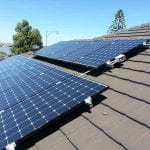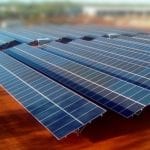Around The Web
The new normal? How climate change is making droughts worse
In the first part of a new series, we take you through the current conditions, and then put them in context with other severe droughts in Australia’s history
Continue reading...How should we deal with a large-scale chemical attack?
CP Daily: Tuesday October 2, 2018
RFS “reset” could help stimulate US biofuel policy reform in 2019
Private equity firm buys stake in carbon traders ACT Group
LG Electronics unveils its first residential energy storage system
 LG to offer Australians an end-to-end energy solution from 2019.
LG to offer Australians an end-to-end energy solution from 2019.
The post LG Electronics unveils its first residential energy storage system appeared first on RenewEconomy.
Greens propose 30 renewable energy zones, backed by grid fund
 Greens propose to create up to 30 special renewable energy zones across Australia, backed by a $2.8 billon grid transformation fund to help drive towards 100% renewables.
Greens propose to create up to 30 special renewable energy zones across Australia, backed by a $2.8 billon grid transformation fund to help drive towards 100% renewables.
The post Greens propose 30 renewable energy zones, backed by grid fund appeared first on RenewEconomy.
UN Intergovernmental Panel on Climate Change expected to release report
Why Indonesia's tsunamis are so deadly
EU Market: EUAs sink below €21 despite bullish auction showing
FOREST TRENDS: The economics of activating dirt to absorb GHGs and restore soil
Hayabusa 2: Japan probe to send lander to asteroid
Why have so many deep water whales washed ashore in Scotland?
Northeast US transport emission cut plans could take shape in December
Delays to energy efficient goods will cost EU consumers 'billions' in lost savings
New eco-designs for products such as TVs and fridges are also crucial to Europe meeting its climate targets, say experts
New energy efficient eco-designs for 15 products including fridges, TVs and dishwashers have been delayed, EU diplomats say, even though experts consider them “crucial” to meeting Europe’s Paris climate pledge. The delays are also expected to mean consumers will miss out on lower energy bills.
The design revamps would have saved 62m tonnes of CO2 emissions – as much as Sweden’s annual primary energy consumption – but now look set to be dealt with by the next commission, in which far right parties may be more influential.
Continue reading...Aviation may need CO2 price of $200/t to drive switch to cleaner fuels -experts
Footage shows Indonesian earthquake causing soil liquefaction – video
Liquefaction has caused buildings to collapse in the city of Palu after last Friday's earthquake. This occurs when the earth takes on the characteristics of a liquid after an earthquake. The death toll from the quake and tsunami has passed 1,200
Continue reading...Ikea says goodbye to plastic straws with display at London's Design Museum
‘Last Straw’ installation aims to raise awareness of plastic waste as the firm bans single-use straws from UK and Irish stores
Ikea today symbolically unveiled its last single-use plastic straw in a display at London’s Design Museum, after it stopped serving or selling the items in any of its UK and Ireland stores, restaurants and bistros this week.
The so-called Last Straw installation will be on show to the public until Saturday and aims to inspire consumers to collectively take small steps that will have a positive environmental impact.
Continue reading...


